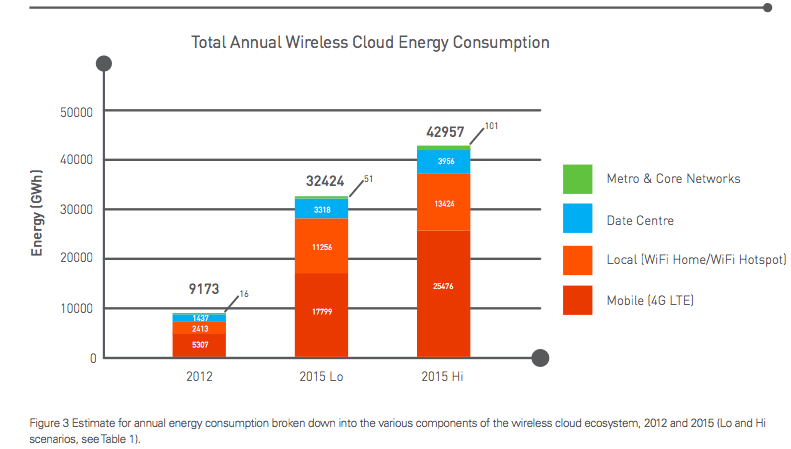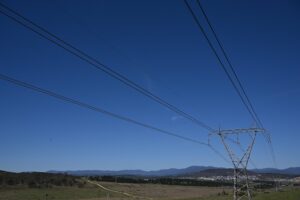The fact that cloud computing services use wireless networks does not mean they need less energy. In fact, it could be that the opposite is true.
According to a new report prepared by Melbourne’s Centre for Energy Efficient Telecommunications (CEET) suggest that energy requirements for data networks (WiFi and 4G LTE) will surge more than five fold in the next three years, and will consume more than 10 times the amount of energy of data centres.
The report – The Power of Wireless Cloud – warns that industry has vastly underestimated energy consumption used by services such as Google Apps, Office 365, Amazon Web Services (AWS), Facebook, Zoho cloud office suite, and many others. It says urgent action is required to curb spiraling energy consumption and CO2 emissions. It says these networks will likely consume 43TWh by 2015, but it could be as high as 51TWh. That compares to 9TWh in 2012.
“When Greenpeace analysed cloud efficiency it hit a nerve with the likes of Google, Microsoft and Apple by suggesting that data centres are to blame for a ‘dirty cloud’,” said Kerry Hinton, the deputy director of CEET. “In fact, the problem is much worse, data centres aren’t the biggest issue. The trend towards wireless is the real problem, and the networks are to blame. By 2015, the energy consumption of data centres will be a drop in the ocean compared to wireless networks in delivering cloud services.
“The problem is that we’re all accessing cloud services – things like webmail, social networking and virtual applications – over wireless networks. It’s the modern way but wireless is an energy monster, it’s just inherently inefficient.”
CEET is investigating ways to improve the way networks are managed for energy efficiency. The global telecommunications system is estimated to consume 2 per cent of the world’s energy, and that figure could grow to 10 per cent by 2020 if no action is taken.









